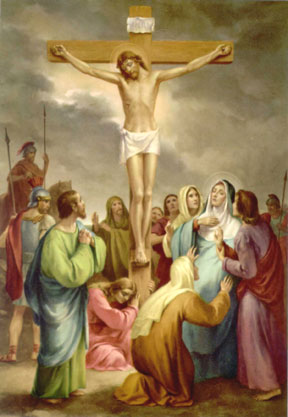 When Christ came back from the dead, why was it revealed in such a secret way? Only a few people saw Christ alive and we are grateful for their testimony, but why not march into the High Priest's headquarters and say "I'm back!"?
When Christ came back from the dead, why was it revealed in such a secret way? Only a few people saw Christ alive and we are grateful for their testimony, but why not march into the High Priest's headquarters and say "I'm back!"?
It is clear from the Acts of the Apostles (10:40) that the fact that Christ appeared only to designated witnesses and not to all the people is no accident. But why did God will it this way? Faith in the risen Jesus means connecting two things: first, really getting to know Jesus, including understanding who and what Jesus was claiming to be through the activities of his ministry; and second, that he was vindicated in all this by God. One could conclude anything from seeing someone risen from the dead; one could conclude all sorts of wrong things - how would anyone know what it meant, and how could people really be certain it was him, unless they very close to him? But Christ appeared to those who had accompanied him before his ministry and had gradually learned from him in his inner circle who and what he was claiming to be. Only such people could have truly benefited from the resurrection, because only they could have understood its meaning. Only they truly understood the message of Jesus, which God was proclaiming (through the resurrection) to be true. Only they could be sure that the risen one really was the Jesus they had known since the beginning of the ministry. (cf. 1 Jn. 1.1-4) Others could then learn from these official witnesses the true meaning of the resurrection and that it was really was Jesus who was risen, and by designating these witnesses God secured the true interpretation of the resurrection in the apostles’ preaching. These others would of course learn by faith, not having seen, but Christ himself says that blessed are those who have not seen and yet believed, so not to have seen benefits them. (The resurrection body is of course a glorified body. It is still a truly human body, but it is glorified by God's power. For example, Christ will never die again - death has no more power over him. This is why Christ’s glorified human body can appear in a locked room.)




